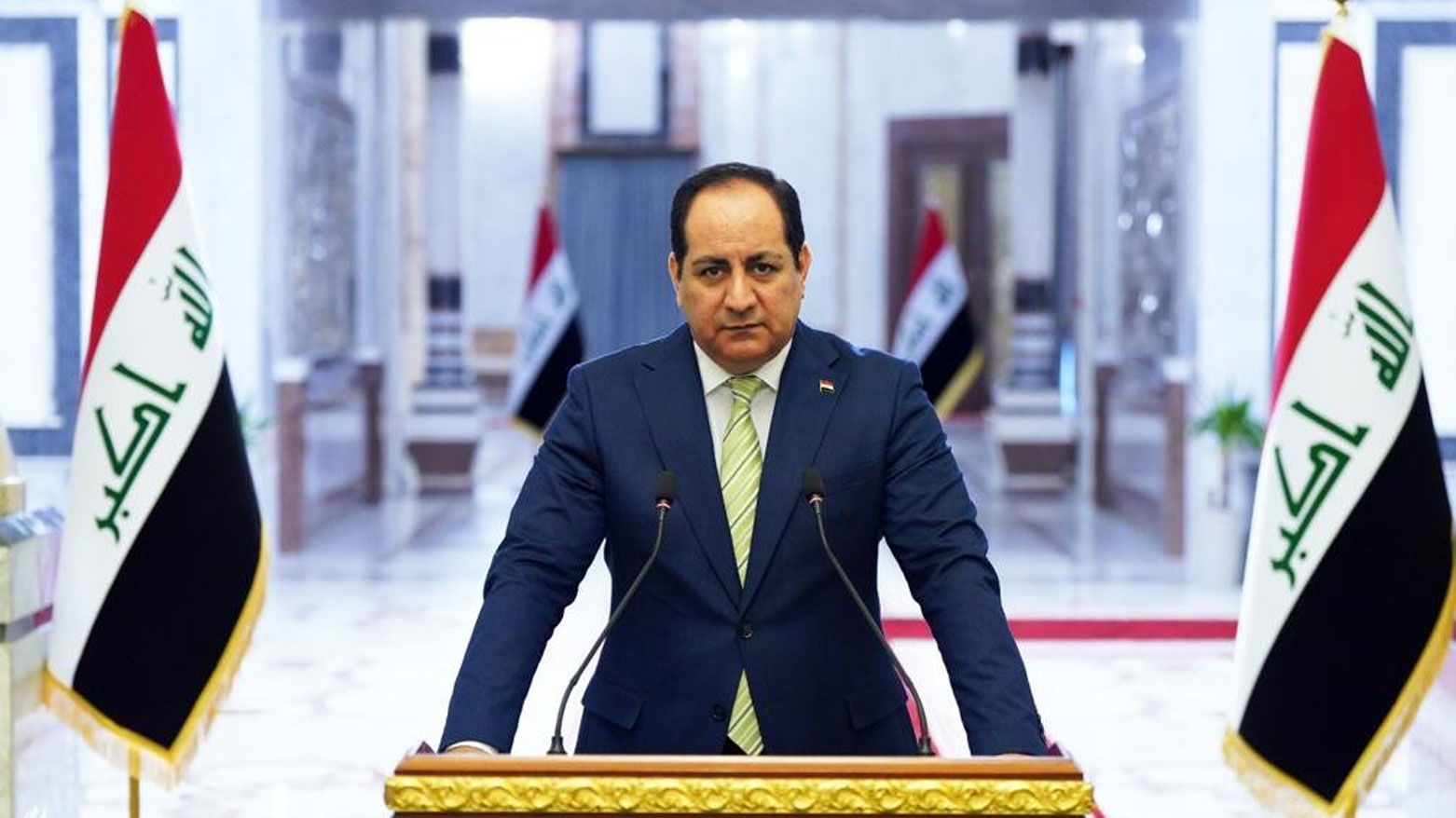Iraqi Government Spokesman Caught in Misinformation as Tensions with U.S. Escalate
Contrary to his claims of "calm and professional" ties between the Iraqi PM and President Trump, multiple sources indicate that the relationship is strained due to Sudani’s failure to meet key U.S. demands.

ERBIL (Kurdistan24) – The Iraqi government’s spokesperson, Basem Al-Awadi, has come under scrutiny after making misleading statements regarding Baghdad’s relations with Washington and the country’s energy independence efforts. Contrary to his claims of "calm and professional" ties between Iraqi Prime Minister Mohammed Shia' Al-Sudani and U.S. President Donald Trump, multiple sources indicate that the relationship is strained due to Sudani’s failure to meet key U.S. demands.
In an interview with the state-owned Iraqi News Agency (INA) on Saturday, Al-Awadi insisted that relations between Iraq and the U.S. remain stable and that discussions between Iraqi officials and the U.S. government are centered on strategic cooperation. However, reports from well-informed sources and international analysts reveal a different reality: Washington is deeply frustrated with Baghdad’s inaction on dismantling Iran-backed militias, facilitating Kurdistan’s oil exports, and reducing energy dependence on Tehran.
Phone Call with U.S. Secretary of State Mark Rubio: A Candid Warning
Al-Awadi also claimed that a recent phone conversation between Prime Minister Sudani and U.S. Secretary of State Mark Rubio did not touch on Iran-related issues. However, multiple sources confirm that Iran’s influence over Iraq was the primary topic of discussion, with the U.S. administration issuing firm warnings regarding the continued activities of Iranian-backed armed groups. Reports suggest that the call was tense and far from the "friendly" exchange Baghdad has portrayed.
In his remarks, Al-Awadi attempted to reassure the public that Iraq is on track to achieving energy independence by 2028. Yet, Iraq continues to import approximately 50 million cubic feet of gas from Iran, which is considered one-third of Iran's natural gas production. The Iraqi government, despite claiming to have explored multiple scenarios for energy self-sufficiency, has yet to implement any significant measures to reduce reliance on Iranian gas.
Tensions Mount Amid U.S. Military Preparations
Al-Awadi’s statements come at a time when President Donald Trump has issued a stark warning to Iran regarding its nuclear ambitions. In a recent Fox News interview, Trump emphasized that there are only two ways to handle Iran: diplomatically or through military action.
"I would prefer to make a deal because I’m not looking to hurt Iran. They’re great people," Trump stated. However, he cautioned that, if necessary, “we have to do something because you can’t let them have a nuclear weapon.”
Simultaneously, the U.S. has deployed AH-64 Apache attack helicopters equipped with Israeli-made Spike NLOS (Non-Line of Sight) missiles in Iraq—a move signaling a major shift in aerial combat capabilities. This unprecedented deployment aligns with Trump’s remarks about a potential escalation if Iran refuses to negotiate.
As U.S.-Iraq relations remain under strain, the Iraqi government’s attempts to downplay tensions and misrepresent discussions with Washington only serve to highlight the growing pressure on Sudani’s government. With Iran's influence still deeply entrenched in Iraq and the U.S. intensifying its warnings, the coming weeks and months could prove decisive in shaping Baghdad’s geopolitical future.
